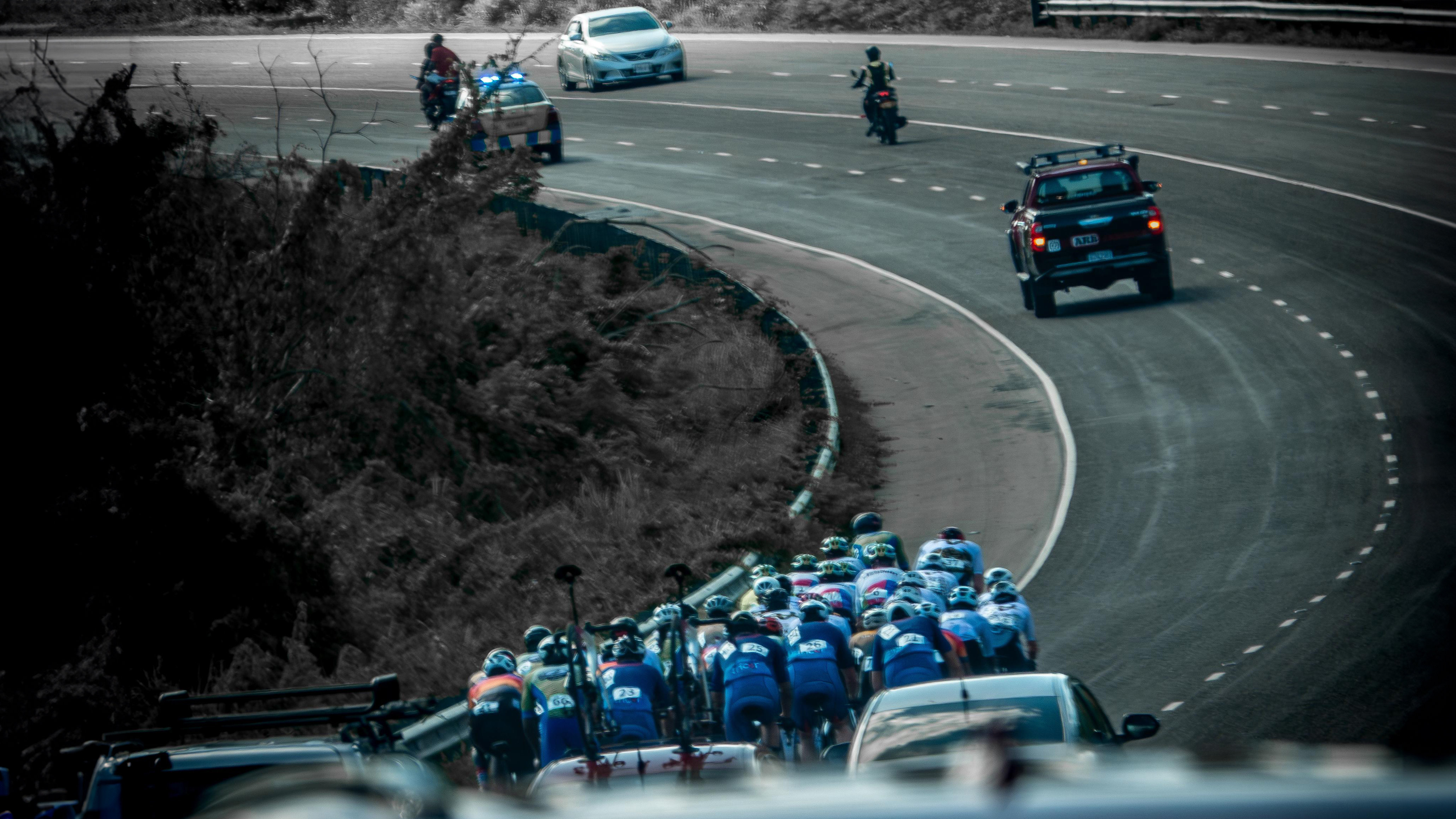

{kiosq_button:center}
When thinking of Jamaica, the first sportspeople who come to mind are those who are famously fast on the athletics track. The history-making successes of the likes of Usain Bolt and Shelly-Ann Fraser-Pryce have inspired a nation to lace up a pair of running shoes. Up to this point, cycling has remained a minor sport in the Caribbean island nation.
Carlton Simmonds would like to change that. He is the Race Director of the Jamaica International Cycling Classic: Jamaica’s first-ever road cycling UCI event. He hopes that the new status of the race will kick-start the growth of cycling both in Jamaica and the Caribbean.
The Jamaica International Cycling Classic has been a national event since 2022, but stepped up to become a UCI 2.2-level competition this year, held over three stages from April 5-7.
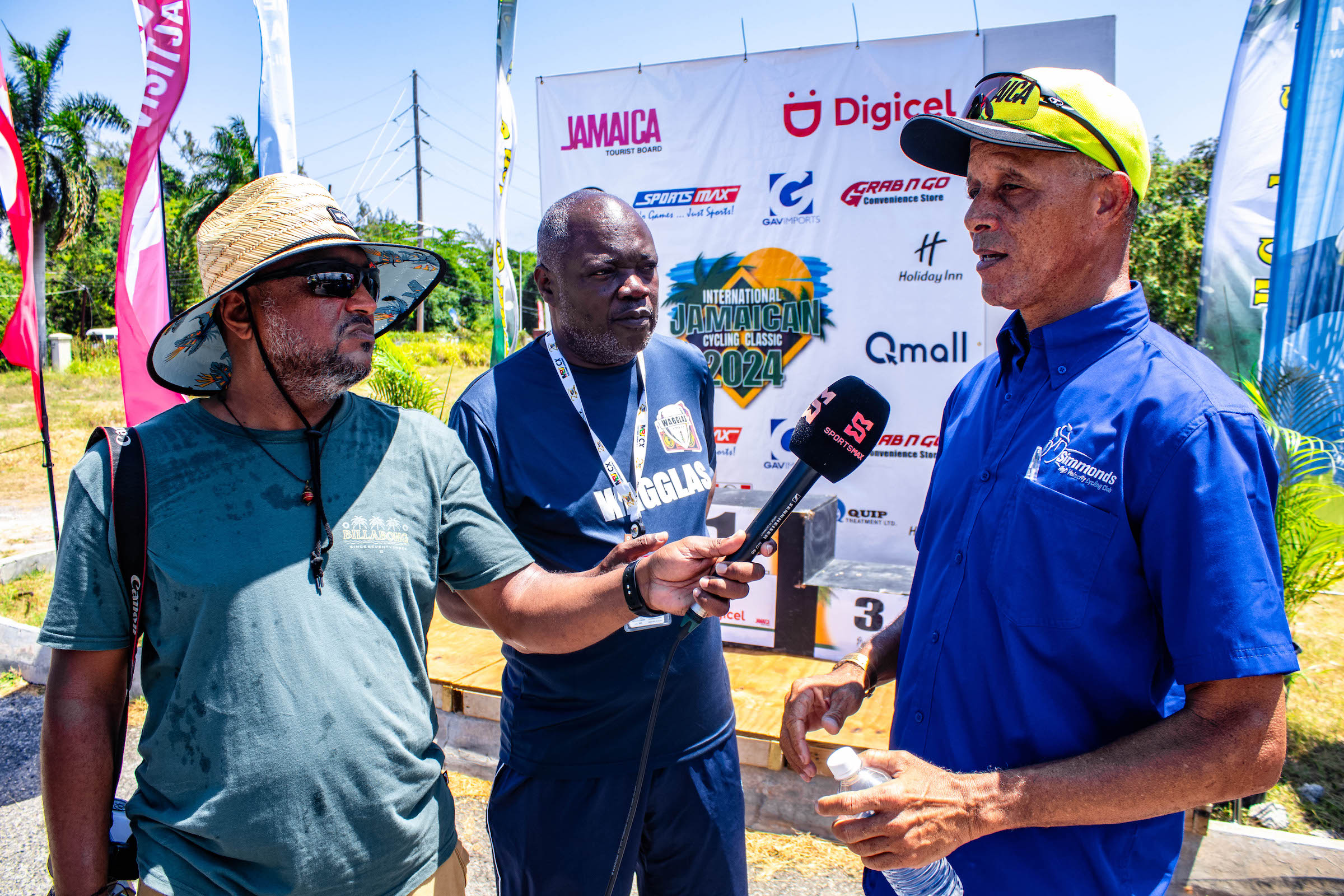
Describing the race to Cyclingnews, Simmonds said that the course showed off Jamaica’s natural beauty. The route looped around the Montego Bay area, taking in the renowned coastline of Jamaica’s most northerly reaches. Much of the route hugged the translucent blue ocean, with the occasional jaunt inland to take in some short, steep hills.
The riders were unable to enjoy the views due to the challenging race, with the peloton being buffeted by the strong and unrelenting Caribbean winds, to which they were completely exposed.
Cycling development in Jamaica
Simmonds hope is that the Jamaica International Cycling Classic will be a catalyst for the development of the sport in the country. Upgrading the race to UCI status means an increase in the ability level represented at the race. This gives a chance for Jamaican riders to compete against a higher standard of opposition, thereby increasing their own levels.
“I think it will help our regional riders to be more exposed to higher-quality racing and higher-quality of riders,” Simmonds said of the upgraded status of the race. “I think that is what is lacking in this space: the calibre of racing that we have and the type of riders that our regional riders are exposed to in terms of their own development.”
When the race was first put on in 2022, there were 45 participants, the majority coming from Jamaica, with others making the trip from around the Caribbean and the USA. This year, with the race’s new UCI status, riders from eleven nations took part. Included among them was Colombian Fabio Duarte (Team Medellin), a veteran of five Grand Tours, and several other South Americans who have experienced racing at the professional level in Europe.
As well as the more established names present, the race gave opportunities to Jamaican riders and others from nations such as Trinidad & Tobago, the Cayman Islands and Barbados to compete over the three stages.
Wilmar Paredes from Team Medellin, a Colombian continental team, won the 2024 edition. The 27-year-old, a former professional with the Manzana-Postobon squad and who returned to racing last year following a four-year suspension, won the first stage, starting and finishing in Rose Hall, by almost two minutes.
Reflecting on the race, Simmonds said that the other teams had been “caught off guard” by Medellin’s aggressive tactics as they pinged multiple riders off the front straight from the gun on day one. For those in the race who had never competed at this level, it was a lesson in cycling tactics.
“It’s a learning curve for all,” Simmonds said. “From just speaking and listening to [the local teams], I think they now get the gist of what real teamwork is and how these teams operate within their structure. I think Team Medellin is the benchmark now.
“I think it has opened some eyes and broadened some minds,” Simmonds added. The challenge now is for the riders to take what they’ve learned and to put it into practice in future races.
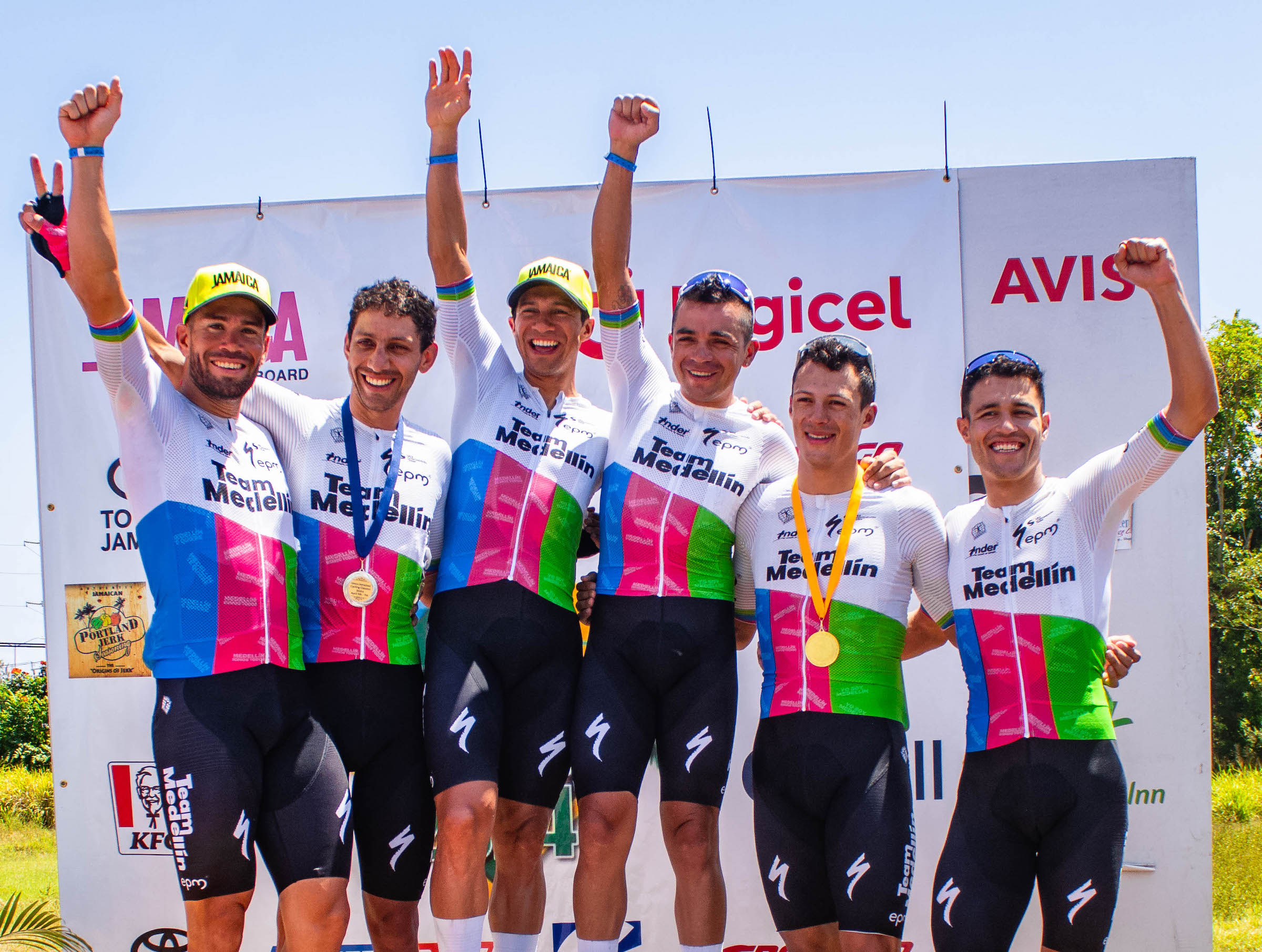
The Colombian squad showed their calibre by winning all three stages of the race, with sprinter Christian Tamayo victorious on days two and three.
Simmonds is himself one of Jamaica’s best-ever cyclists, having competed regularly at the Pan-American level during his racing career. He has been part of the sport for four decades as a rider and coach.
Simmonds describes the development of Jamaican cycling over that time as “up and down.” Recreational cycling has grown exponentially in recent years, but the sporting side is yet to catch up. He cites a lack of financial resources as a root cause of the lack of progress.
“Funding is always an issue, and to develop talent properly, it requires money. You can't stay locally; you have to come out of the space and it requires a whole lot of money to move people around to get them to high-quality races. So if we can have an event where we can bring people [to race in Jamaica], it will only help to develop our regional and local riders' ability.”
Simmonds believes that the race will give local riders the opportunity to be spotted by bigger teams. “It creates a platform for them to get exposure, where continental teams, their director sportifs, can actually get a chance to see them and what they bring to their team,” he said.
Creating a pathway
The sport’s development in Jamaica faces another major challenge, which is to attract young people to cycling instead of Track and Field.
“Track and field is at its element here in Jamaica,” Simmonds said. “Everybody wants to be the next Shelly-Ann Fraser-Pryce, Elaine Thompson-Herah or Usain Bolt.
“There's a lot of work that needs to be done from the Federation standpoint to bring youth development into the sport…there's a lot of work to create a proper youth development programme to be able to drive the sport for the long haul.
“That is where I think the Federation has to now start focusing—how we get the sport into our schools, to get our young people interested in the sport at the level of which we have track and field.”
There are big differences between the two sports. Cycling is more prohibitive in many ways, with a greater cost to those wanting to take it up. Another difference, and one which may be more significant for attracting younger talent, is a clear pathway to success and a sustainable career.
In Track and Field, an athlete can progress simply by winning. If they win enough or run fast enough, they will find themselves at the national trials, where they can qualify to compete for Jamaica in major competitions such as the Olympic Games and World Championships.
Young people in Jamaica have seen athletes before them find success in Track and Field in this way. Some have gone on to become Olympic champions and world record holders. It’s a simple pathway.
Cycling does not work the same way. The steps taken to progress in the sport are complex and uncertain, especially for those from non-traditional cycling nations.
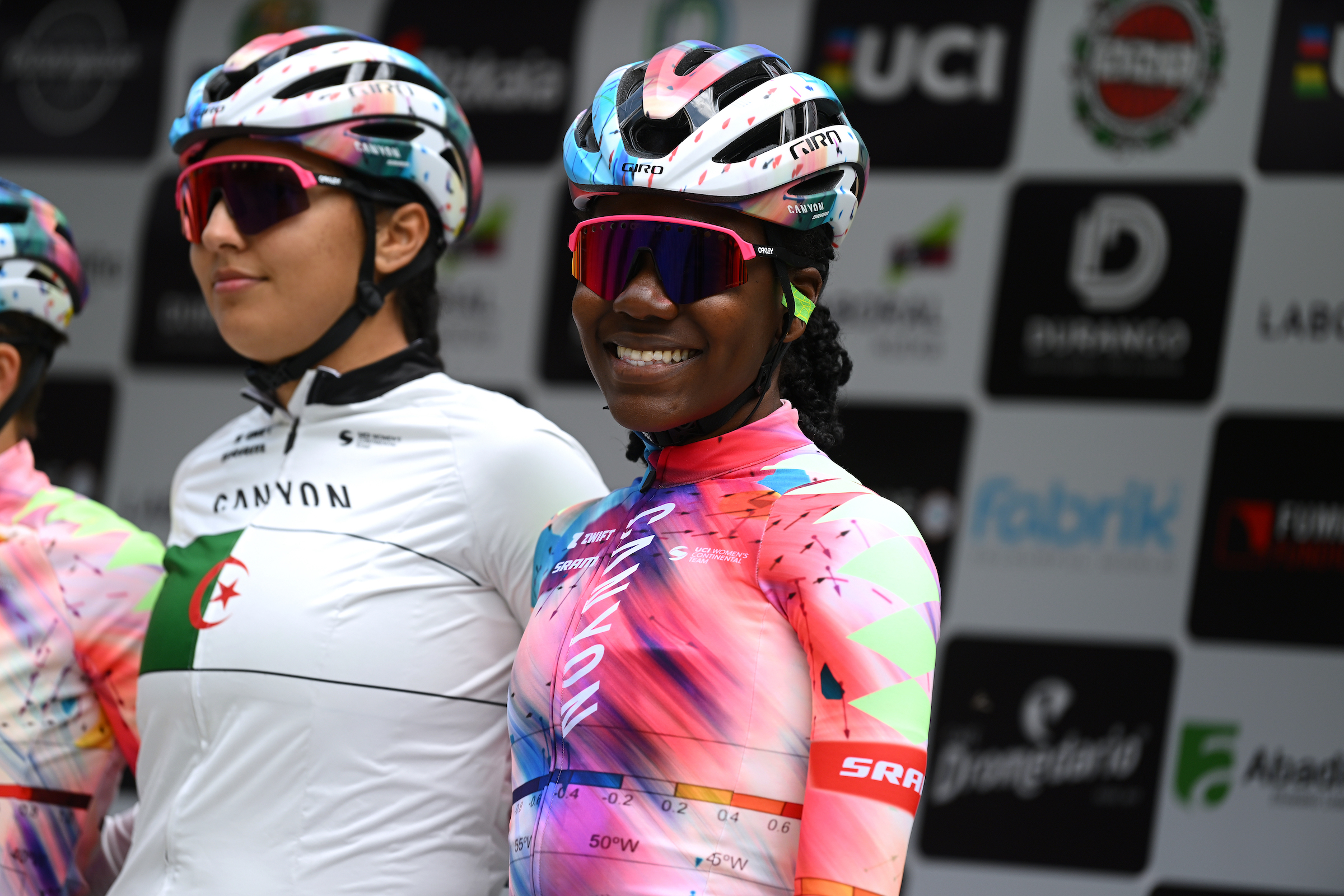
There is one Jamaican cyclist who has made it to Europe. In 2022, Llori Sharpe became the first Jamaican cyclist, male or female, to ride for a UCI-registered team when she signed for Canyon-SRAM Generation - the development setup for the women’s WorldTour Canyon-SRAM team. Sharpe raced in Europe for two seasons before moving to the USA at the start of 2024 to race for Legion of Los Angeles.
Her progression to Europe was an unconventional one, thanks to Canyon-SRAM Generation’s mission to provide opportunities to riders from lesser-represented nations.
“There's really not much going on in terms of having something of a stepping stone to go from Jamaica to making the transition to European cycling, so I was really grateful for the opportunity with Canyon-SRAM Generation because that provided that sort of trajectory into the European peloton," Sharpe told Global Peloton at the end of the 2023 season.
"In Jamaica, and in the Caribbean on the whole, we could probably do more work in seeing how best we can provide a pathway for cyclists to transition into the professional ranks," she added.
Sharpe’s success has inspired young riders in Jamaica to take up cycling, but participation is still relatively small, especially among women.
Simmonds hopes that the Jamaica International Cycling Classic will change that. He believes the event can drive cycling participation for men and women in the country for years to come.
“Come next year, we will have a women’s event,” Simmonds said. “We don't have many females in the region, but it's something that we will be looking to do because we have to look at how we can get more women competitive.
“Longevity for the event is going to be key. What we don't want is to start it this year and next year it's not on the calendar. We will be pushing to make sure at a minimum five or six years it's there for the development in the region.”
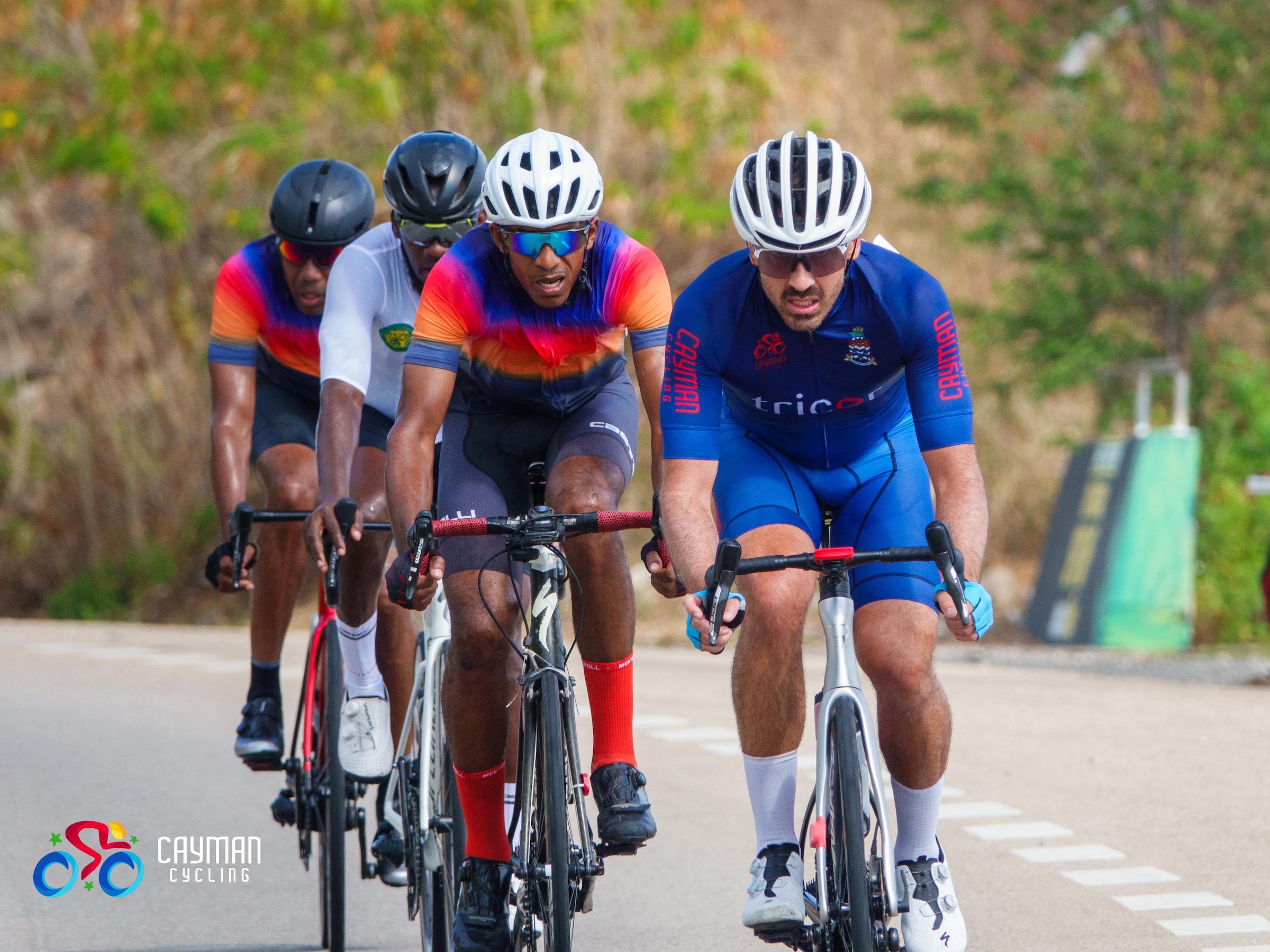
{kiosq_button:center}








